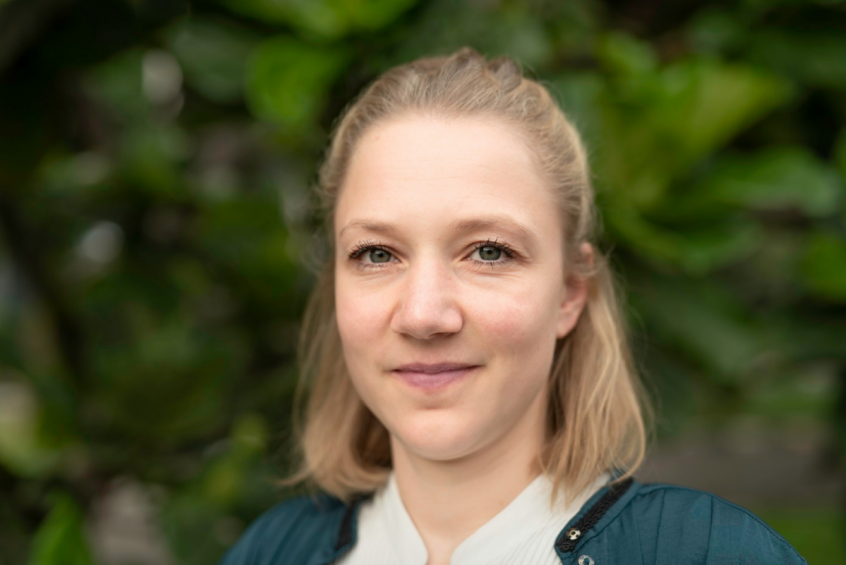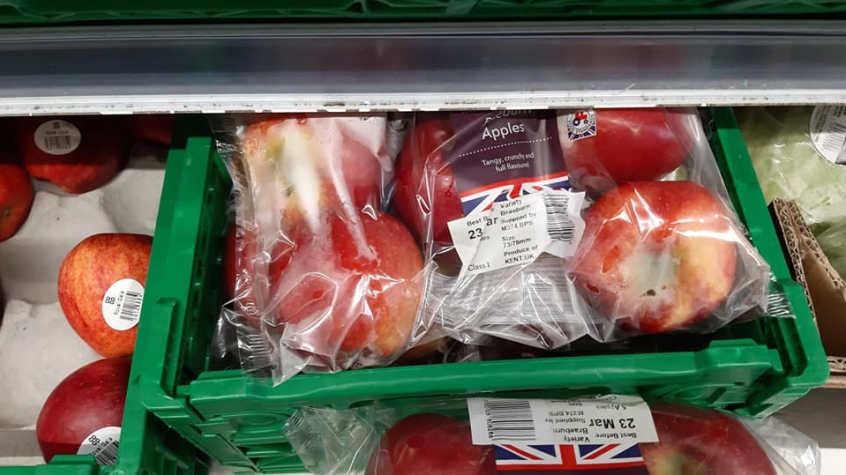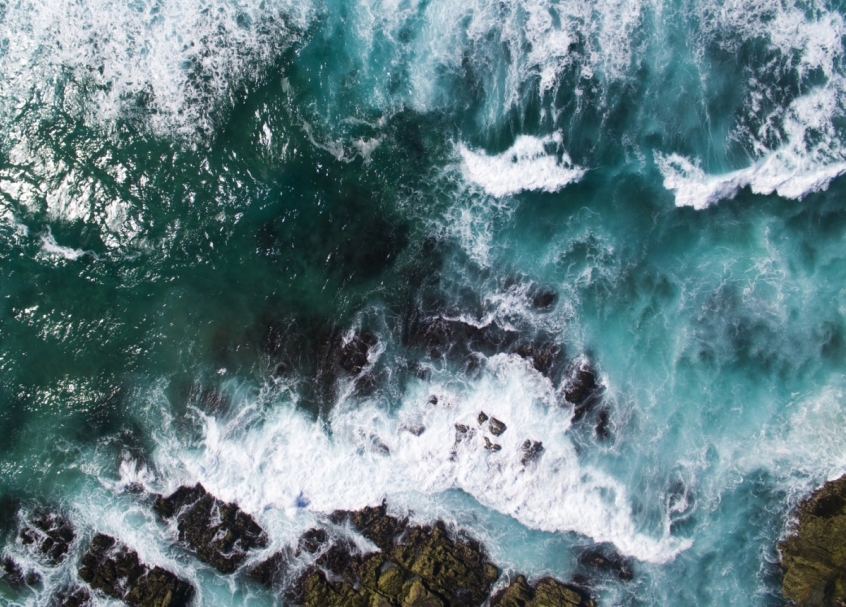
Lilian Maria Kurz is Project Coordinator of the World Evangelical Alliance's Sustainability Center, created a year ago to support evangelical churches in making creation care a part of their discipleship and help them to do their part to address harmful climate change.
She talks to Christian Today about what the Church can do and the action she wants to see governments taking at a global level.
CT: Plastic pollution is a big concern not only in Christian circles, but also secular organisations engaged in creation care. Is that an area of engagement for the Sustainability Center too?
Lilian: Yes it is. Last year, we were approached by the Plastic Bank, a social enterprise that aims at reducing ocean plastic while at the same time alleviating poverty in marginalized communities. The approach of the Plastic Bank is to monetize plastic so that it becomes too valuable to discard.
The Plastic Bank has initiated an Interfaith Stewardship Movement, whereby churches and congregations set up plastic collection points and members of the community are encouraged to bring their plastic to the collection point. The churches can then sell the plastic into Plastic Bank's Social Plastic Ecosystem and in turn use the income to support the poor and marginalized in their communities.
Peter Nitschke, who is responsible for faith engagement at the Plastic Bank, was a speaker in one of our webinars, and right now, we are in the process of signing a Memorandum of Understanding with the movement.
CT: What do you think of the climate protests taking place around the world?
Lilian: We have to fight the climate challenge by all means. It is great if many people, particularly young people, take to the streets to make their voices heard.
As for the Church, we need to invest in the next generation of leaders who are ready to take on problems bigger than simply those affecting their own local environment. We need not only to be engaging in the fight against climate change but to be articulate in how we do this. It is an urgent issue so we should be "all hands on deck" so to speak.
But there also needs to be action at the political level because there are not enough laws and incentives to encourage the private sector as well as individual consumers to change their behavior and their lifestyle.
CT: Speaking of the consumer, what can Christians do on the individual level to live in a more climate conscious way?
Lilian: In September this year, we ran a webinar addressing this very issue as part of our Season of Creation. The title was 'How Christians Can Really Engage in Creation Care' and in it, we looked at the different levels of engagement, from global advocacy right down to changes in individual lifestyles and living in a more sustainable way. We need to live in a respectful way. By that I mean being more respectful towards the natural resources that God has entrusted us with.
CT: What are some of the simple things that people can do to live in a more sustainable way?
Lilian: There are so many. We can buy our groceries in stores that do not wrap their products in plastic. We can shop at farmers' markets and bring our own reusable shopping bags. We can use public transport or cycle to work - which is also good exercise! We can buy more organic foods and cosmetics. Such products used to be much more expensive but the price has fallen because of increasing demand.
CT: The Sustainability Center was created by the WEA a year ago. What are you trying to achieve?
Lilian: The vision of the WEA Sustainability Center is to see Christians play a leading role in global sustainability efforts. To this end, our mission is to inspire and empower churches and congregations around the world to effectively implement creation care as part of holistic discipleship.

Since the establishment of the WEASC in fall 2018, we have put our focus on two areas of activities. The first one is to engage in advocacy at the global level. For example, we participated in the UN Environment Assembly in Nairobi earlier this year and we have held talks with UN representatives in Bonn in Germany, where we are based.
We are also a member of the International Partnership on Religion and Sustainable Development, a multi-stakeholder platform that brings together faith-based organisations, governments and intergovernmental organisations. The goal of the platform is to engage the unique capacities of faith-based organisations for sustainable development in line with the Agenda 2030 for Sustainable Development.
Our second focus is the webinar series that we have set up in the beginning of the year. The webinar series enables us to reach Christians all over the world in a very economical way. It is a tool for global outreach and partnership with other organisations involved in creation care, like the World Council of Churches. We have been surprised by the level of interest among other faith-based organisations and intergovernmental organisations to work with evangelicals on creation care.
CT: Generally speaking, evangelicals in some countries have been quicker to embrace creation care than others. Have you found that to be the case within the WEA's global family?
Lilian: As a global platform, we know of numerous wonderful creation care initiatives by evangelical communities in various parts of the world. Some national Evangelical Alliances are interested in this topic and approach us, asking for advice on how to address creation care on the national level and in their member churches. With that in mind, we are planning a publication showcasing evangelical creation care work in 2020.
On the global level, the WEA established the Creation Care Task Force in 2012. As the WEASC, we cooperate very closely with this task force. Moreover, Bishop Efraim Tendero, the General Secretary of the WEA, has stated that throughout the next year, creation care will continue to be a priority for WEA's global advocacy. Hence, we can see that at different levels of the evangelical global family, creation care is addressed.
Nevertheless, in a number of churches, we do indeed see that creation care is not regarded as a priority. That means other priorities tend to be addressed, for example, in sermons and in their social engagement. We would like to invite these communities into a dialogue with us, because we believe that creation care is part of holistic discipleship.

It is an expression of our love for God to appreciate the value of his creation and to proclaim this in the society that we live in. Creation was given by God and it is our call to take care of it in a responsible way. We have to make sure that the way we treat creation does not lead to destruction and pollution of living environments for current and future generations.
Unfortunately, we have not been very successful in following this call. Numerous communities are suffering from the effects of climate change. Particularly, those who suffer most from the effects of global warming or extreme weather events, are often the ones with the least resources to respond to these challenges. As Christians, we are called to love our neighbours worldwide. I cannot love my neighbor, as Jesus calls me to, if I do not take care of his or her living environment in a healthy and sustainable way.
CT: You mentioned that governments can introduce laws and incentives to support behavioral changes within corporations and among individuals. Is there anything else governments should be doing?
Lilian: Countries with high levels of traffic should invest in better public transport systems. That means making public transport attractive and affordable, and more widely available. This would lessen the reliance on cars and reduce carbon emissions.
There are other things that need to change. It doesn't make sense that sometimes in some European countries the price of a domestic flight is 10 per cent of the cost of a train ticket, even though planes emit a lot more CO2 emissions. The price incentives should be the other way around.
There also needs to be higher investment in the area of green technology and renewable energy. With improvements in these fields, big companies could eventually produce their products in a more sustainable or eco-friendly way.
To find out more about the WEA Sustainability Center's work, visit wea-sc.org













